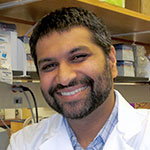Four new Gillings Innovation Labs awarded
February 29, 2016
Four teams of researchers at the UNC Gillings School of Global Public Health have been awarded new funding for Gillings Innovation Labs (GILs), beginning this spring.
The GIL awards offer faculty members support to advance their innovative research and more quickly translate scientific findings into workable solutions in local and global communities. The awards are administered by Research and Innovation Solutions, the Gillings School unit that manages a portion of the $50 million gift to the UNC public health school from Dennis Gillings and Joan Gillings.
This fifth round of awards brings to 26 the number of research projects that have received GILs funding.
School leaders used a rigorous but rapid turnaround process to solicit proposals from Gillings School faculty in one of six high-priority areas, including implementation/improvement science, connected health (including mHealth), healthy aging, population health, big data and health, and new public health methodologies.
“In the past, we have shown that we can accelerate solutions through a rapid solicitation and funding process,” said Barbara K. Rimer, DrPH, Gillings School dean and Alumni Distinguished Professor. “Through the generosity of the Gillings gift, we can solve problems faster than through traditional grant solicitations processes.”
A pool of 75 highly qualified reviewers in the United States and abroad examined the 23 proposals and selected those deemed most likely to solve problems in areas that would advance improvements in the public’s health. A committee of the Gillings School’s chairs and other leaders discussed the reviewers’ recommendations and selected four for funding.
The awardees are:
Stephen R. Cole, PhD, professor of epidemiology, and Michael G. Hudgens, PhD, professor of biostatistics, for the project “Causal Inference Research Laboratory.” Cole, Hudgens and their team will address two significant topics in biostatistics and epidemiology, namely “big data” analysis and causal inference, and will apply the methods to HIV and renal disease.
Mark Sobsey, PhD, Kenan Distinguished Professor of environmental sciences and engineering (ESE) and director of the Gillings School’s Environmental Microbiology Laboratory, and Jamie Bartram, PhD, Don and Jennifer Holzworth Distinguished Professor of ESE and director of The Water Institute at UNC, for “Transformative Use of Chitosan as a Coagulant-Flocculent and Filter Aid to Improve Drinking Water.” Lydia Abebe, PhD, a Carolina Postdoctoral Program for Faculty Diversity fellow in ESE, was instrumental in designing the research proposal and will have a key leadership role in the project. The team aims to develop a new water treatment technology to overcome waterborne viruses including rotaviruses, noroviruses and Hepatitis E and A viruses, all of which can lead to diarrhea, liver disease and death.
Of note: A student team working with Sobsey recently won an EPA grant to expand research Sobsey conducted earlier with the support of another GIL award. That first lab supported the development of technology to detect and measure E. coli bacteria in drinking water. The student team is developing technology to detect and measure cholera bacteria in water.
Miroslav Styblo, PhD, professor of nutrition, and Praveen Sethupathy, PhD, assistant professor of genetics in the UNC School of Medicine, for “Circulating microRNAs as Novel Biomarkers of Arsenic-Associated Diabetes.” The team, comprised of toxicology and diabetes experts at UNC and in Mexico, will study population exposure to arsenic as a unique cause of diabetes, leading to precision treatments targeted to the specific biological pathways harmed by arsenic.
Deborah F. Tate, PhD, professor of health behavior and of nutrition, and Carmina G. Valle, PhD, research assistant professor of health behavior, for “Precision Public Health: Enhancing Connections to Develop Just-in-Time Adaptive Intervention Strategies.” Noting that 40 percent of deaths from the five leading causes in the U.S. are largely preventable through behavior change, the team will develop new electronic health (eHealth) measures, called just-in-time adaptive interventions, to individualize eHealth communications about exercise and diet in ways that meet unique needs of participants.
“These four projects represent some of the most ambitious and creative research ideas at the Gillings School,” said Julie MacMillan, MPH, managing director of Research and Innovation Solutions. “Expert reviewers and School leaders were struck by the teams’ winning combinations of innovative thinking and top-notch scientific rigor. We can hardly wait to see what they discover.”
Dean Rimer expressed gratitude to MacMillan and to Sandra L. Martin, PhD, professor and associate chair of maternal and child health and associate dean for research at the Gillings School, for managing the process of soliciting, reviewing and awarding the GILs.
“From efforts to develop new methods in epidemiology and biostatistics to creating tools to design individualized interventions to prevent disease (the public health side of precision medicine) to removing viruses from water and finding diabetes cases caused by arsenic, we are making the world healthier and safer,” Rimer said. “Thanks to the Gillings gift, we are able to fund the most innovative, problem-solving proposals from our faculty members.”
Gillings School of Global Public Health contact: David Pesci, director of communications, (919) 962-2600 or dpesci@unc.edu








